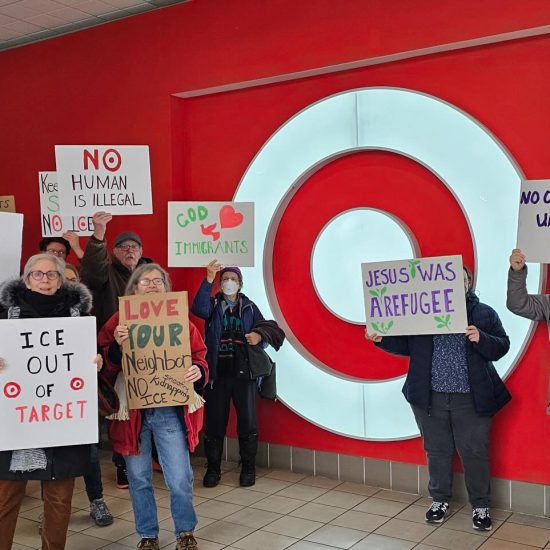
One of the joys of growing up in the rural South has to be the food. In a land where there are not four seasons, just hot and hotter, there’s plenty of seasoning. As James Autrey put it, “Seasons came with food not the other way around.” Our seasons were identified by the foods that we raised. Planting potatoes, butterbeans, tomatoes, squash, cucumbers, watermelons, corn, purple-hull peas – rites of passage from spring to summer to fall. And there’s the meat. That’s where fried chicken takes over the kitchen. The chicken was so revered in the South that we called it the “gospel bird.”

Rodney Kennedy
I reminisce about fried chicken for one serious reason. Fried chicken, at least until someone invented nuggets and assorted pieces, came as breast, thigh, leg, and wing. The most valued piece at our table was the breast. Lucky was the person who managed to get two chicken breasts at dinner. The poor wings were the last pieces to leave the platter.
Now that politics has become a junk food mall, the chicken has been reduced to one more fast-food item: Chick-fil-A, Kentucky Fried Chicken, Popeyes, Raising Cane’s, and so many others. Joshua Gunn says that “one could argue in a peculiar, perverse sense, that our junk food habit is homologous to our piquant political diet these days.” The allure of junk food matches the allure of our politics – simple, cheap, fast, superficial, but somewhat tasty. Junk food addicts care nothing for nutritional value and good taste. Political junk food addicts care nothing for rational deliberation and good manners.
Add a dollop of ketchup to this cuisine nightmare and you have poor taste in spades. Gunn remarks about ketchup, “As culinary histories go, we probably should not be surprised that a seventeenth-century Asian table sauce – made of pickled fish – would turn up in the United States in an octagonal bottle of sugary red pulp, the butt of which one …. Must. Relentlessly. Pound. To release. The. Tangy. Treacle.” The ketchup of American politics is emotions. Both the left wing and the right wing churn out emotions from the outrage factory.
Prominent political actors have figured out that the media – all of it – has about a fourth-grade level in terms of what gets publicity. Politics in America have, therefore, become a giant chicken house. If you have ever been in a chicken house (one of those long, tin-roofed, wire-wall cages that hold up to 5,000 chickens per house) then you know that it’s 50% noise from cackling chickens and 50% chicken poop. The only good day in a chicken house is the day the trucks show up, all the chickens are put in crates, hauled away, and the house is emptied, clean, and sanitized. This, of course, doesn’t feel possible for our Chicken House of Politics.
A famous preacher once prayed: “God is not for the right wing or the left wing. God loves the whole bird.” Not in our political culture. All that matters are the wings. The rest of the bird is now manipulated and even silenced by the wings. Together these wings represent only a third of the population, but they control political discourse for the time being.
What complicates this over-hyped, wing-saturated culture is the outrage that erupts when a speaker engages in his or her own brand of controversial speech. Liberals use free speech to shame conservatives. On the other hand, conservatives use free speech to attack minorities, immigrants, and women. Conservatives say that liberals use “political correctness” to police conservative speech. Free speech and hate speech are a volatile mixture.
More and more people accept all kinds of speech and invoke free speech privileges if you attack them for being rude, crude, and obscene. Profanity is now seen as a sign of strength for political candidates. Profanity has become, for some, a civic virtue. There seems to be a sort of rhetorical synergy between profanity and civility. This is remarkable in a culture that not so long ago was entertained by George Carlin’s comedy riff, “Seven Words You Can’t Say on TV.” Shouldn’t at least one or two people at least raise an eyebrow that profanity has been promoted to the profound.
Traditional ceremonial rhetoric seems no longer sufficient to satisfy a rabid public’s need for leaders to shout back at all kinds of outrage and terror with defiant, uncivil, reckless, profane outbursts. Outrage, profanity, and crazy, off-the-wall ideas are offered a place at the table of normality.
To some, this may sound like attempting to close the barn door after a couple billion horses have bolted. But somewhere there has to be a conversation, a deliberation, a discernment about the future of democracy. Maybe there’s a slight chance of a crack in the door of emotion for a return of Aristotle. After all, to Aristotle, moderation was the ideal approach to behavior. He taught that extremism led to unhappiness in every aspect of life. Extremism was unwise. Now, that’s a twenty-five-hundred-year-old idea that needs a fair airing in public.
Free speech has become more about being “free” than it is about speech. The cry is for more freedom, unlimited freedom. The irony is that there’s been a dumbing down of free speech. No one seems to care about the debilitating impact of hate speech on others. When conservatives were required by federal law to swallow existing racism, they were strangely quiet in the decades following the Civil Rights movement. Now, they have returned with a vengeance, blurting out all kinds of racist verbiage. This time they have two allies in tow: denial of racism and free speech. In what sense has it become acceptable for Christians to defend hate speech? Or to deny the realities of history or systemic racism?

Egor Myznik / Unsplash
I cannot believe that a new age of outrage, public profanity, and bad manners will prevail among us. No matter how many people are feeling “free” I am not convinced that this movement will make us proud of being Americans or rewrite our social attitudes and democratic practices. I admit that I hope this is a fad that will fade into obscurity. There is an undercurrent of evil in our midst like a “bad moon rising,” and we should not lose our sense of urgency. Perhaps the advice of Plato can shake us from the doldrums: “And when the orator instead of putting an ass in the place of a horse, puts good for evil, being himself as ignorant of their true nature as the city on which he imposes is ignorant; and having studied the notions of the multitude, persuades them to do evil instead of good, – what will be the harvest which rhetoric will be like to gather after the sowing of that fruit?… Anything but good.”
The warning signs that our obsession with “wings” undermines democracy are too strong and too “in-our-faces” to ignore. Eddie Glaude, Jr. in Democracy in Black, observes, “Together we must close the value gap and uproot racial habits by doing democracy, once again, in black. If we fail this time – and if there is a God I pray that we don’t – this grand experiment in democracy will be no more.”
One powerful voice in our wing-based politics was that of Vaclav Havel, the poet who became president of Czechoslovakia. Havel suggested that the world was losing “the idea that the world might actually be changed by the force of truth, the power of a truthful word, the strength of a free spirit, conscience and responsibility – no guns, no lust for power, no political wheeling and dealing.” To abandon truthfulness for lies, deception and the vague notion of freedom puts the public sphere at risk. Havel said, “I am convinced that we will never build a democratic state based on the rule of law if we do not at the same time build a state that is… humane, moral, intellectual, spiritual, and cultural.” Havel’s poetic expressions of the power of moral democracy resound as an orchestra filled with trumpets drowning out the cacophonous sounds of a house full of noisy chickens
Rodney Kennedy has his M.Div. from New Orleans Theological Seminary and his Ph.D. in Rhetoric from Louisiana State University. The pastor of 7 Southern Baptist churches over the course of 20 years, he pastored the First Baptist Church of Dayton, Ohio – which is an American Baptist Church – for 13 years. He is currently professor of homiletics at Palmer Theological Seminary, and interim pastor of Emmanuel Friedens Federated Church, Schenectady, New York. His sixth book – The Immaculate Mistake: How Evangelicals Gave Birth to Donald Trump – is now out from Wipf and Stock (Cascades).






